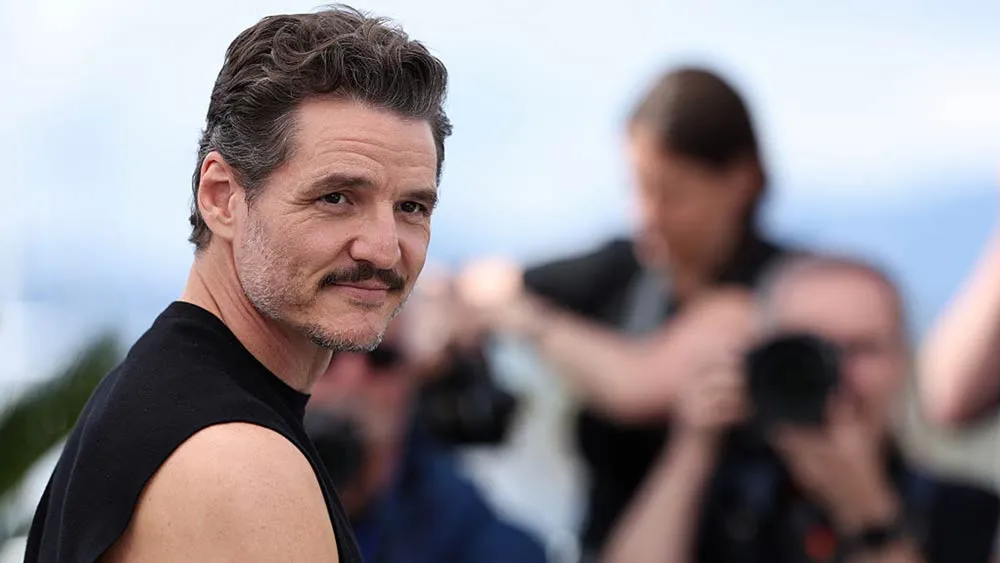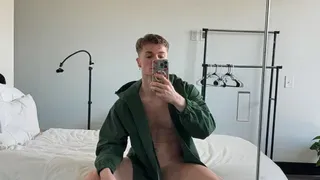October 22, 2013
'Girl on Girl' Documentary Tackles Lesbian Invisibility
Winnie McCroy READ TIME: 5 MIN.
A new Indiegogo Campaign seeks to raise $100,000 for the first phase of production of "Girl on Girl," a new documentary about feminine lesbians. Running through Nov. 5, the campaign seeks to battle the invisibility these women face every day.
"It's as if being a feminine lesbian translates to, 'out of sight, out of mind,' said Director Jodi Savitz. "That said, 'Girl on Girl's' goal is to call attention to their lives in order to establish and legitimize their subject position within the LGBTQ community."
Savitz turned to the popular crowd-funding site after garnering more than 12,000 fans on Facebook. The documentary's popularity is rising, and it has been sponsored by New York Foundation for the Arts and Curve Magazine.
The film will focus on the lives of feminine lesbians and the unique challenges they face as women whose identity is constantly trivialized and stigmatized, both within and outside of queer spaces.
"In a nutshell, feminine lesbians are virtually invisible, are not taken seriously, and, even after coming out, often walk through life feeling unacknowledged and/or delegitimized within and outside of the LGBTQ community simply due to their feminine or 'straight looking' presentation," said Savitz. "The film's emphasis on community solidarity will help to build a network for women and girls who are just coming out and who aren't naturally inclined to alter their appearance to fit masculine stereotypes of 'what a lesbian looks like."
In a recent interview with EDGE, Savitz gave several examples of recent situations in which she as a feminine lesbian is assumed to be heterosexual by both gays and straights. In one instance, Savitz attended a Rainbow Alliance event, and before she could even speak was asked if she was lost, and warned that she might not feel comfortable around the queer students, leaving her "feeling a bit shunned, as though I was not gay enough because I looked straight."
She spoke of the dominant cultural stereotypes that define feminine lesbian identity as frivolous, unsubstantiated and synonymous with bisexuality -- even within the LGBT community.
"Ironically, it is in some of the most 'progressive' environments, such as universities or major cities, that the dominant attitude within the LGBTQ community is that 'passing is a privilege,'' said Savitz. "This standpoint leaves many feminine lesbians feeling as though they have 'no right' to speak up about their personal challenges or struggles with sexuality or [in]visibility because they, in and of themselves, inhabit a 'privileged' subject position."
In another scenario, Savitz and another feminine girl were making out at a bar when a guy asked them if they could "get in on that." The man's friends apologized, but added that the women were "too pretty to be gay." She hopes that these sort of men are the ones who will unintentionally stumble upon her documentary.
"Our making out is cross-culturally accepted as an open invitation for straight men to approach us," said Savitz. "They have no shame. And they never seem to care how disrespectful and utterly condescending their behavior toward feminine lesbian couples is. This is why this film is unique; they're the same men who will Google 'girl on girl' and stumble across the film's website, the same men who'll accidentally think it's a documentary about porn, and the same men who most definitely need a wake-up call to understand that their behavior is truly disgraceful and inherently homophobic."
"Girl on Girl" is groundbreaking because it's the first documentary of its kind to explore feminine lesbian identity and experience without visually comparing the women to other queer identified bodies. With a diverse cast of feminine lesbians, some of whom are well-established in the LGBT community, the film will create a reference point for people outside of the community to see real, unscripted stories and examples of women who solidly identify as feminine lesbians, but who regularly 'pass' as straight.
Each story will confront stereotypes of what a lesbian looks like simply by being present on screen and will challenge society's (both straight and queer) strongly held perceptions that real lesbians are 'butch.' Through a visual narrative, the film is able to claim that feminine lesbians are a legitimate, thriving subset of the LGBT community and need to be taken seriously.
Those celesbians to be featured in the documentary include Lauren Bedford Russell of "The Real World: Season 3," Huffington Post columnist and lesbian porn producer Jincey Lumpkin of JuicyPinkBox.com, and other women from across the country.
"I'm seriously just so over explaining to everyone on a daily basis that I am a lesbian who they say 'doesn't look like a lesbian.' So frustrating!" wrote Lumpkin in a letter.
Savitz said that with luck and funding, they will shoot the documentary over the course of this year, from November to next July, and then move into post-production by July or August 2014.
She hoped that she would be able to bring the documentary to film festivals by next fall, and to travel to the screenings for festival talkbacks. She wants it to be marketed to both the LGBTQ and mainstream communities, so that everyone can access the film's message. Savtiz also wants to design a supplemental educational program to allow for screenings in schools, colleges and LGBT youth centers, to encourage productive and positive dialogues about 'invisible' populations.
"What's awesome about 'Girl on Girl' is that our title will attract the audience who needs to see this film most," said Savitz. "It's a documentary with the commercial potential to get in front of large, unassuming audiences worldwide. With proper funding, marketing and distribution, 'Girl on Girl' could actually become a 'popular' documentary with the ability to change the perspectives of mass amounts of people, and thus help the LGBTQ community gain visibility as a whole."
For more information, visit facebook.com/girlongirlmove. To donate to the campaign, visit igg.me/at/girlongirlmovie
Winnie McCroy is the Women on the EDGE Editor, HIV/Health Editor, and Assistant Entertainment Editor for EDGE Media Network, handling all women's news, HIV health stories and theater reviews throughout the U.S. She has contributed to other publications, including The Village Voice, Gay City News, Chelsea Now and The Advocate, and lives in Brooklyn, New York.



